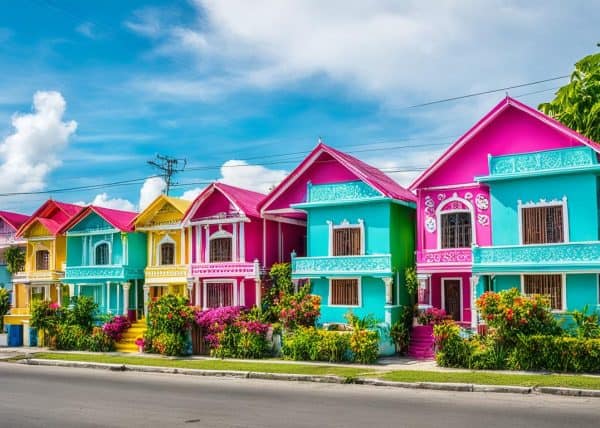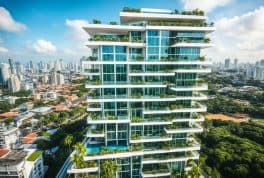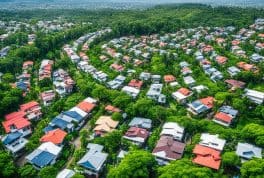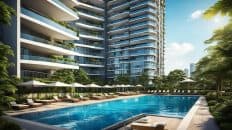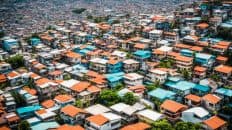Philippines Real Estate
Looking to tap into the Philippines real estate market? Whether it’s a strategic investment or a dream home you’re chasing, the Philippines offers a wealth of opportunities. This article cuts through the noise to present you with an insightful look into the market’s best locations, the dynamics of buying property, and a curated selection of real estate fit for every budget and lifestyle.
Want to Rent, Lease, or Buy Your Dream Home in the Philippines? We have Real Estate Expert whose speciality is working with Foreigners to make their dreams come true. Click Here
@toddofthejungle Real Estate Tips...
Explore Top Philippines Real Estate - Find Your Dream Property Now
Key Takeaways on Philippines Real Estate
- The Philippines real estate market offers a variety of prime locations such as Metro Manila, Cebu City, and Lapu Lapu City, each featuring diverse property options from residential to commercial, accommodating different lifestyle preferences and investment objectives.
- Prospective buyers can choose from a broad selection of property types, including foreclosed properties, commercial real estate, and land for sale or rent, all presenting unique opportunities and considerations such as pricing, location, zoning laws, and potential for development.
- Utilizing online search platforms, engaging with professional real estate agents, and staying updated through real estate alerts are essential strategies for those seeking to find their ideal property in the competitive Philippines real estate market.
Top Locations for Philippines Real Estate
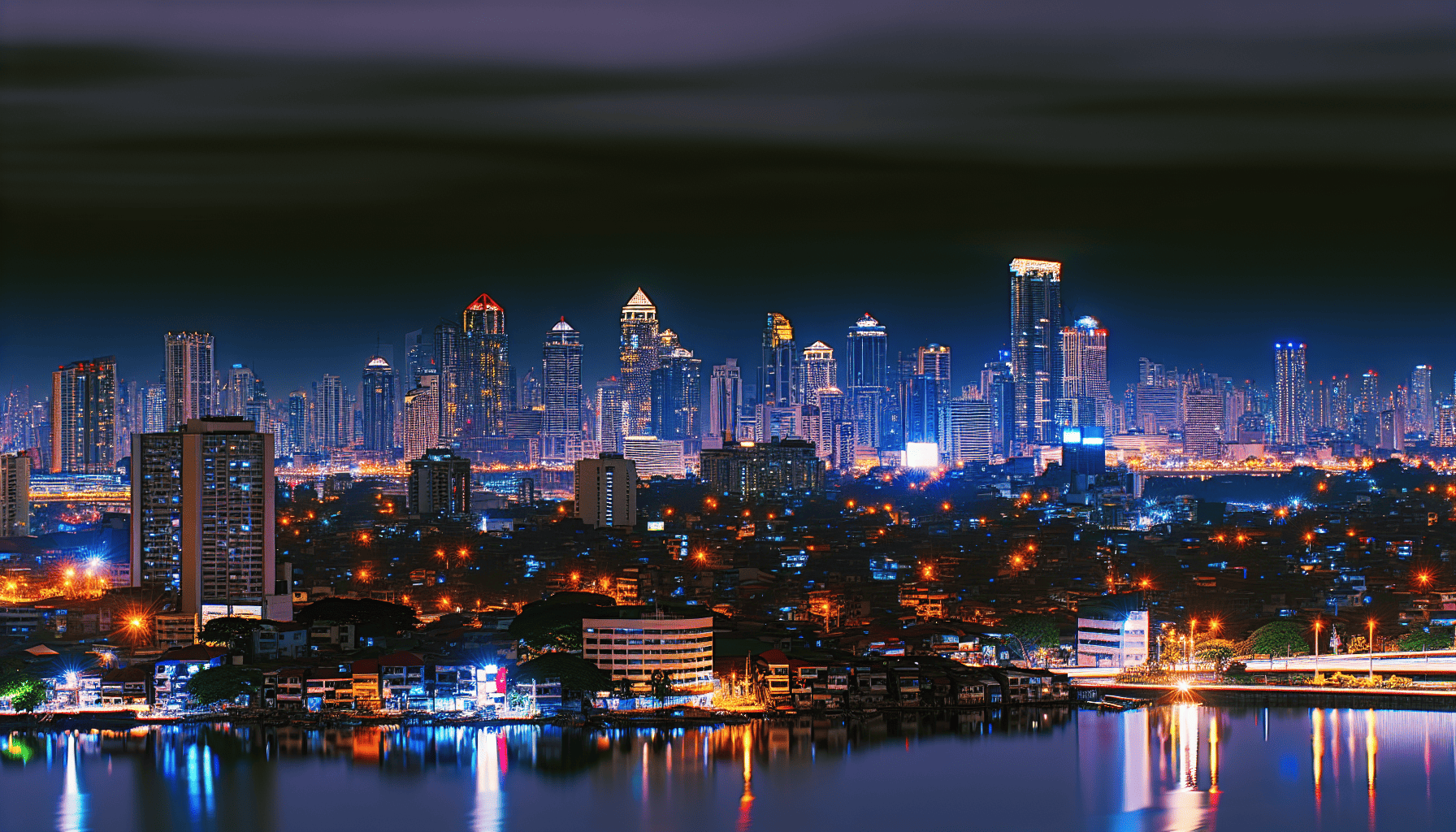
The Philippines’ real estate market radiates with dynamic opportunities across the country. Whether you’re aiming to inhabit the rhythmic pulse of a bustling city or the serene rhythms of a seaside town, the Philippines has an array of prime locations to satisfy your desires.
We will explore the top locations houses for sale in the philippines, apartments, prime real estate ,top locations, and apartments here in the Philippines, each offering their unique charm and potential.
Metro Manila Houses and Apartments
Metro Manila, the bustling capital of the Philippines, offers a vibrant selection of residential properties, including many of the top metro manila apartments, houses and apartments, houses locations condominiums, apartments, condominiums locations condominiums, townhouses and apartments. From modern houses and apartments to townhouses and condominiums, the city is teeming with properties that cater to a variety of lifestyles. The city’s highly sought-after neighborhoods, such as Fort Bonifacio Global City in Taguig and Makati City, boast notable landmarks and amenities, making them ideal for property investment.
Nonetheless, residing in Metro Manila presents its own set of advantages and challenges. The city’s rich culture, diverse dining options, and economic growth are enticing, but potential buyers should also consider factors such as traffic, crime rates, and air pollution.
Top Locations in Cebu City

Famed for its stunning beaches and rich history, Cebu City offers a diverse range of property investment opportunities. The city’s flourishing economy, substantial tourism, and the growth of diverse industries make it an appealing choice for real estate investors. Prime locations for property investment in Cebu City include Mactan Island, the heart of Cebu City, and Mandaue City, offering a buffet of choices for investors and homebuyers.
There’s a strong demand for properties in top locations in Cebu City, with a vibrant market interest expected to continue through 2024. The city caters to a variety of preferences and budgets, offering properties top locations such as:
- Condominiums
- Townhouses
- Agricultural land
- Beachfront properties
Lapu Lapu City Real Estate Opportunities
The rapidly growing city of Lapu Lapu is a treasure trove of real estate opportunities. Anticipated population growth and various development initiatives make the city an attractive choice for investors. The city’s property market offers a diverse selection of properties, including:
- Houses
- Condos
- Townhouses
- Villas
The rental market in the city is also buoyant, with properties yielding an average rental return of about 5.45% in the city center and 5.12% in the outskirts. This demonstrates the city’s appeal not only to homebuyers but also to investors seeking income-generating properties and locations rent.
Types of Properties for Sale in the Philippines

The Philippines’ real estate market for sale offers a diverse range of properties for sale. From residential options for sale such as houses, apartments, condos apartments, and townhouses to commercial properties tailored for business purposes, there’s a property type for sale to suit every investor’s needs. In addition, the market for sale also features foreclosed properties for sale, which are properties for sale that have been reclaimed by banks due to loan defaults.
Commercial properties, tailored for business purposes, are also abundant in the Philippines, with listings easily accessible on various property portals and websites. Additionally, the country also offers a variety of land options available for sale or rent, perfect for those looking to build from the ground up.
Next, we will examine these property types more closely, discussing their distinct features and potential advantages.
Foreclosed Properties
Foreclosed properties present potential benefits and risks for investors. These are properties repossessed by a bank due to the owner’s default on mortgage payments. They encompass residences, condominiums, and land, and are typically offered at reduced prices as sale foreclosed properties.
However, acquiring a foreclosed property in the Philippines does come with certain obstacles. Buyers must consider potential hidden costs, legal complications, and issues with the property’s condition or location. Being well-informed about the purchasing process can help navigate these unique considerations.
Commercial Properties for Sale
The Philippines offers a considerable selection of sale commercial properties. These sale commercial properties include:
- Office spaces
- Industrial properties
- Retail properties
- Plots of land
These properties are designed to meet various business needs. Average prices can vary significantly based on the property’s location and type, but they can be a worthwhile investment for business owners and investors.
Prime locations for commercial real estate investment in the Philippines include the top locations:
- Quezon City
- Makati City
- Mandaluyong City
- Pasig City
- Cebu City
These top locations apartments were chosen due to their economic activity and vitality.
Land for Rent or Sale
The Philippines also offers a variety of land options for sale, condo or rent land. Whether you’re looking to rent or build your next condo, dream home or establish a business, finding the perfect plot of land is crucial. Prime locations for land for rent land, condo, or sale commercial properties include Makati CBD area, Fort Bonifacio, and Ortigas Center area, with prices varying by location.
Before purchasing land in the Philippines, it’s essential to consider zoning laws, which can regulate the usage and development potential of the land. Consulting local authorities can help potential buyers gain clarity on any zoning ordinances that may affect their intended use of the property.
Finding Your Ideal Property: Tips and Tools
Finding your ideal property in the Philippines can be a thrilling journey, and having the right tools and tips at your disposal can streamline the process. Whether you’re conducting an online search, requesting information, or staying updated on new listings, there are ways to make your property hunt more effective and efficient.
We will examine these strategies in more detail in the subsequent subsections.
Online Search Platforms
Online search platforms have revolutionized the way we search for properties in the Philippines. They offer user-friendly search features and a wide range of property listings to help you find your dream home or investment property.
Top online real estate search platforms in the Philippines include dotproperty.com.ph, MyProperty.ph, Lamudi Philippines, and Hoppler. By utilizing these platforms, you can browse and compare properties for sale, review and refine your search criteria, and even compare property prices.
Requesting Information and Assistance
After pinpointing a top area, top condo site or potential property, the next vital step in your property journey is to request information. You can contact real estate agents through the Philippine Real Estate Directory or locate licensed real estate brokers on the Point2 Homes website.
When engaging with a real estate agent in the Philippines, it’s important to understand the standard expectations for services, fees, and processes. Generally, you can anticipate covering expenses related to documentary stamps, title transfer, and the registration of the new property.
Staying Updated on New Listings
Keeping an eye on new listings and real estate opportunities every day can provide a competitive edge in your property search. Real estate alerts and newsletters provide regular updates and personalized communication to ensure you’re aware of the latest real estate opportunities.
Popular websites for real estate search and alerts for sale in the Philippines include Lamudi Philippines and MyProperty.ph, while popular app choices include Lamudi Philippines, Lazatu, Dot Property, Hoppler, Zipmatch, Property24 Philippines, and Rentpad. By personalizing your real estate search and alerts, you can stay abreast of properties for sale that align with your specific interests.
Popular Lifestyles and Property Types
The Philippines’ real estate market caters to diverse lifestyles, offering condos and townhouses for urban living, and luxury homes for those seeking top-notch amenities and exclusive locations. Whether you’re seeking a luxury home in an elite neighborhood or a commercial space in a bustling city, the Philippines offers something for everyone.
Condos and Townhouses
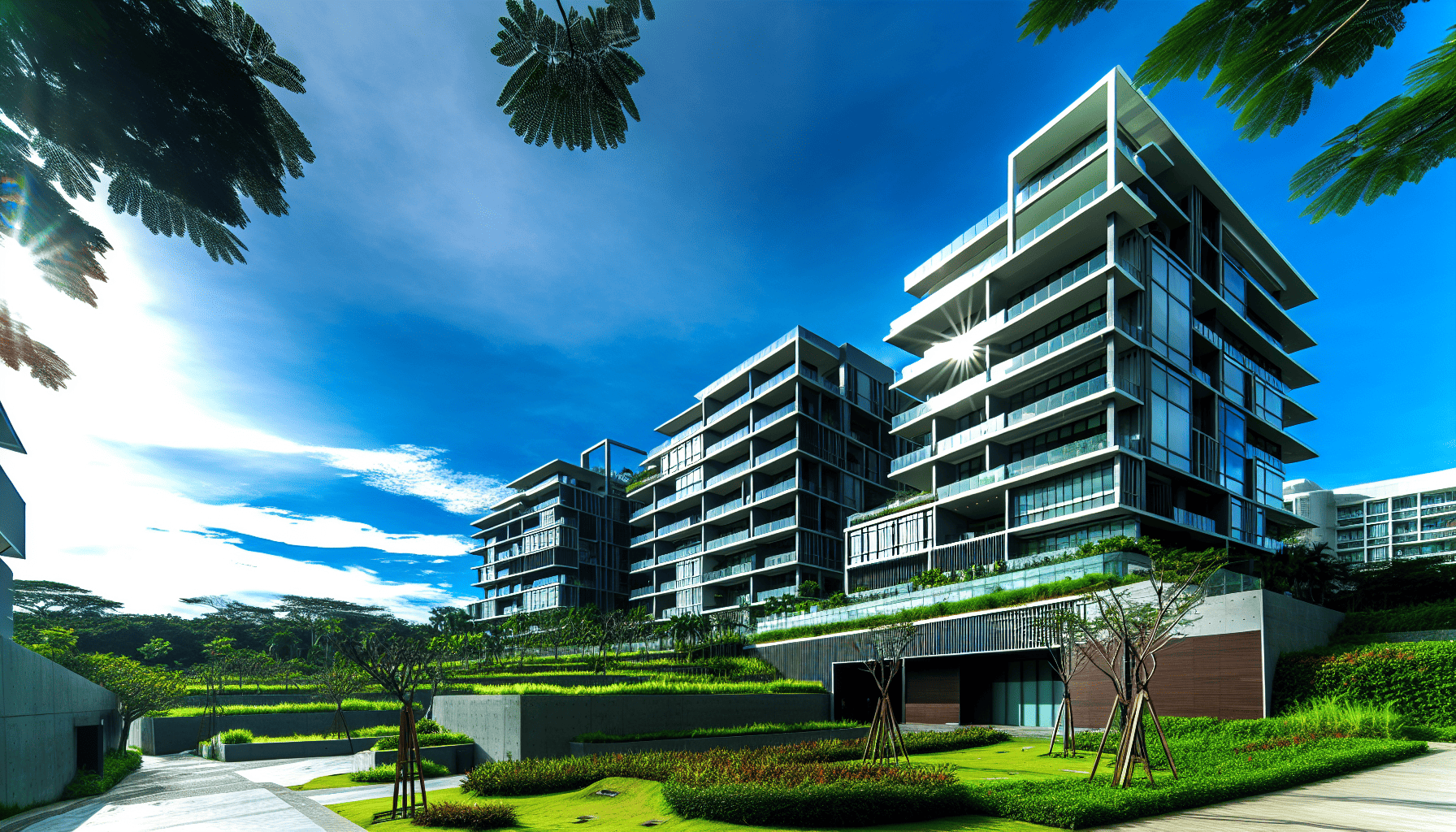
Residing in a house condos, apartments or house condos locations houses house condos, apartments house condos or townhouses in the Philippines provides a multitude of benefits, including:
- Increased convenience and access to amenities due to their central urban locations
- A sense of community fostered by living in close proximity to neighbors
- Reduced maintenance costs compared to owning a standalone house
Some of the country’s top locations condominiums and top five locations apartments and five top locations condominiums and townhouses, five top locations condominiums, and five top locations condominiums and five locations apartments, townhouses and developments include:
- The Magnolia Residences
- El Pueblo Manila
- Glam Residences
- Two Central
These properties offer amenities that improve comfort and convenience, such as fitness centers, swimming pools, parking facilities, and security services.
Luxury Homes
The luxury home and apartments sector area in the Philippines area is an area characterized by top-tier amenities, breathtaking locations, and status. Luxury homes and apartments are classified based on factors such as their location, floor area, plan, layout, and representation of wealth. They often include amenities like swimming pools, gyms, and advanced smart home technology.
Top luxury home locations in the Philippines include:
- Alabang
- Daang Hari in Cavite
- Sta. Rosa in Laguna
- Tagaytay
- Cebu
- Makati
- Boracay
- Palawan
These properties offer a taste of the high life for those who seek the finer things in life.
Real Estate Projects and Developments
The Philippines is buzzing with real estate projects and developments. Whether it’s residential or commercial developments, the country is a hotbed of real estate activity. Prominent real estate developers shaping the country’s real estate landscape include:
- Ayala Land
- Megaworld
- SM Prime Holdings
- Filinvest Land
Residential Developments
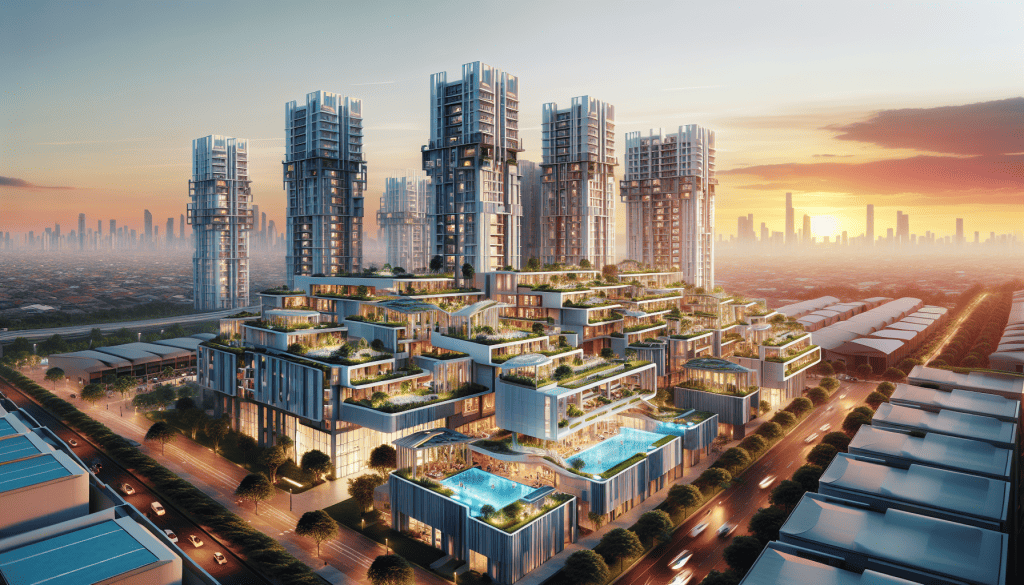
The Philippines hosts these top locations apartments and a plethora of residential developments, providing a wide spectrum of housing options to suit diverse budgets and lifestyles. From high-rise Philippines condominiums to single-family Philippines houses, these top locations houses house condos that cater to a variety of needs and tastes.
Upcoming residential developments in Metro Manila include:
- Ibiza at Circulo Verde
- Woodsville Crest 3
- La Vida
- Park One
- Olin at Jade Drive
- Gold Residences
- Sands Residences
- Sail Residences
These projects offer a range of options, from affordable housing to luxury residences, in various top locations apartments and the various top locations apartments and the top locations apartments and top locations townhouses, top locations apartments, and top locations townhouses we cater to.
Commercial Developments
The commercial real estate sector in the Philippines is also flourishing. Commercial developments cater to various business needs, including:
- Office spaces
- Industrial properties
- Retail establishments
- Special-purpose properties
Major commercial developments in the Philippines include the Marawi Rehabilitation and Development project, the San Fernando Mixed-Use Complex, and the Baras Solar Power Plant. These projects highlight the dynamic nature of the country’s commercial real estate market.
Summary
Packed with stunning locations, a variety of property types, and a dynamic real estate market, the Philippines offers endless opportunities for prospective homebuyers and investors. Whether you’re seeking a luxury home in an elite neighborhood, a townhouse in a bustling city, or a plot of land to build your dream home, the Philippines is a real estate paradise waiting to be explored. As you embark on your property journey, remember to stay informed, be patient, and enjoy the process. After all, the joy is in the journey as much as in the destination.
Frequently Asked Questions
How much is rent in philippines?
The average rent for apartments in the Philippines varies depending on the rent, area and location of apartments, but the rent for apartments can range from $200 for rent to $1,000 per month rent.
How much does a house cost in the philippines?
The average cost of a house in the Philippines varies depending on the area, location and specific property details. In Cebu, real estate prices typically range from moderate to high.
What are the best locations for real estate in the Philippines?
The best locations to rent land for real estate top locations rent land here top locations rent it here in the most top locations townhouses Philippines are Metro Manila, Cebu City, and Lapu Lapu City, which offer top locations to rent land and great investment opportunities rent land there.
What types of properties are available for sale in the Philippines?
In the Philippines, you can find a wide range of properties for sale, such as houses, condos, townhouses, commercial properties, foreclosed properties, and land for rent or sale. Consider your needs and budget to find the perfect property.
How can I stay updated on new property listings in the Philippines?
Subscribe to real estate alerts, updates and newsletters from different property portals and websites to stay updated on new property listings in the Philippines.
Philippines Real Estate Terms
Bahay Kubo (Nipa Hut): The Bahay Kubo, also known as a Nipa Hut, is a traditional Filipino house that epitomizes rural living in the Philippines. Made from natural, locally sourced materials such as bamboo and nipa palm leaves, these huts are designed to be both eco-friendly and resilient against the tropical climate. They represent a significant part of Filipino heritage, showcasing an architectural design that maximizes ventilation and natural cooling. The simplicity and functionality of the Bahay Kubo have inspired modern Filipino architecture, where elements are incorporated into contemporary designs to reflect a unique blend of tradition and modernity.
Condominium: In the Philippines, a condominium is a type of residential building where individuals own their unit space but share ownership of common areas such as lobbies, amenities, and the land upon which the building is constructed. The concept has gained popularity in urban centers like Metro Manila, Cebu, and Davao, catering to the growing demand for vertical living spaces due to limited land availability and the convenience of living close to business districts and commercial centers. Condominiums range from studio units for single professionals to larger units for families, offering various amenities like swimming pools, gyms, and function rooms.
Lot for Sale: The term "Lot for Sale" is commonly seen in real estate listings across the Philippines, indicating available parcels of land for purchase. These lots vary in size, location, and purpose, ranging from residential, commercial, to agricultural uses. Buyers often consider factors such as proximity to main roads, accessibility to public transportation, and potential for appreciation in value. Investing in a lot provides the flexibility to build a property according to one's preferences and requirements, making it a popular choice among individual buyers and developers alike.
Townhouse: Townhouses in the Philippines are a popular housing option, particularly in urban and suburban areas. These multi-floor homes are part of a complex of similar houses sharing at least one wall with adjacent properties. They offer a balance between the affordability of condominiums and the space of single-family homes, making them ideal for middle-income families. Townhouses often come with their own small yard or garage and shared amenities like playgrounds or swimming pools, providing a sense of community among residents.
Subdivision: A subdivision in the Philippines refers to a residential community planned and developed with a specific layout of streets, lots, and public areas. These communities are designed to provide a secure and organized living environment, often gated and equipped with amenities such as parks, clubhouses, and sometimes schools and commercial areas. Subdivisions cater to various socioeconomic classes, offering a range of housing options from affordable single-detached homes to luxurious villas, appealing to families looking for a sense of community and security.
Real Estate Developer: Real estate developers in the Philippines play a crucial role in shaping the country's landscape, responsible for the planning, development, and construction of a wide range of property projects, including residential subdivisions, condominiums, commercial complexes, and industrial parks. Leading developers like Ayala Land, SM Prime Holdings, and Megaworld Corporation have transformed vast areas into integrated urban developments, contributing to economic growth and providing Filipinos with homes, employment opportunities, and access to retail and leisure facilities.
Broker: In the Philippine real estate industry, a broker is a licensed professional who acts as an intermediary between sellers and buyers of property. They possess in-depth knowledge of the market and are skilled in negotiation and completing legal requirements. Real estate brokers play a vital role in ensuring smooth transactions, providing valuable advice and services that include property listings, site visits, facilitation of offers and contracts, and assistance with securing financing. Their expertise is especially valuable in navigating the complex landscape of property investment in the Philippines.
Agent: Real estate agents in the Philippines work closely with brokers to facilitate the buying, selling, and leasing of properties. While the terms "agent" and "broker" are often used interchangeably, agents typically work under the supervision of licensed brokers. They engage with clients to understand their needs, present property options, arrange viewings, and assist in the negotiation process. Agents are instrumental in connecting potential buyers or tenants with the right property, ensuring a match that meets both parties' requirements.
Leasehold: Leasehold ownership in the Philippines refers to a type of property tenure where the buyer has the right to use and occupy a property for a specified period, usually ranging from several years to up to 50 years, subject to the terms of a lease agreement with the landowner. This arrangement is common in areas where foreign ownership of land is restricted, allowing foreigners to invest in Philippine real estate indirectly. Leasehold properties can include residential units, commercial spaces, and even land, providing a viable option for those looking to reside or establish a business in the Philippines without owning the land outright.
Freehold: Freehold ownership represents the most absolute form of property ownership in the Philippines, where the owner holds the title to the land and any structures on it indefinitely. This type of ownership grants the holder complete control over the property, including the right to occupy, sell, lease, or bequeath it. Freehold is the preferred form of ownership for many Filipinos as it provides a sense of permanence and security, with the land potentially being passed down through generations. However, it's important to note that foreign nationals are generally restricted from owning land in the Philippines, although they can own condominium units or buildings, provided that Filipino citizens or entities hold a majority of the ownership in the condominium corporation.
Title (TCT - Transfer Certificate of Title): The Transfer Certificate of Title (TCT) is a critical document in the Philippine real estate sector, serving as irrefutable evidence of property ownership. It specifies the property's exact measurements, location, and the name of the owner, along with any encumbrances such as mortgages or liens. Securing a TCT is a vital step in the purchase process, offering buyers peace of mind and legal protection. It's essential for property transactions, ensuring that the transfer of ownership is officially recorded and recognized by the government.
Deed of Sale: In the Philippines, the Deed of Sale is a legally binding document that records the sale of a property, outlining the agreement between the buyer and seller. It details the property's description, the agreed price, and the terms and conditions of the sale. The execution of this document is crucial for transferring ownership, as it serves as the basis for updating the title in the new owner's name. The Deed of Sale must be notarized and presented to relevant government agencies to effect the transfer of title and the payment of necessary taxes and fees.
Capital Gains Tax: The Capital Gains Tax in the Philippines is a levy on the profit from the sale of non-business assets, including real estate. For properties, it's typically a fixed rate of 6% of the gross selling price or the current fair market value, whichever is higher. This tax must be settled before the transfer of the title to the new owner. Understanding and accurately computing this tax is essential for both sellers and buyers to ensure compliance with tax regulations and to facilitate a smooth property transfer process.
Documentary Stamp Tax: The Documentary Stamp Tax (DST) is a mandatory tax imposed on property transactions in the Philippines, including the sale of real estate. It is applied to documents that facilitate the transfer of property, such as the Deed of Sale and the mortgage contract, if applicable. The rate is generally 1.5% of the property's selling price, zonal value, or fair market value, whichever is highest. Payment of the DST is a prerequisite for the registration of the sale and the issuance of a new title under the buyer's name.
Transfer Tax: Transfer Tax is levied on any mode of transferring ownership of real estate in the Philippines, such as through sale, donation, or inheritance. The rate varies depending on the location of the property, with local government units (LGUs) imposing the tax at rates typically ranging from 0.5% to 0.75% of the property's total selling price or zonal value, whichever is higher. This tax must be settled to complete the transfer process, making it an important consideration in the overall cost of acquiring property.
Real Property Tax: In the Philippines, Real Property Tax (RPT) is an annual tax imposed on all types of real estate, including land, buildings, and improvements. The rate and valuation are determined by the local government units where the property is located, generally ranging from 1% to 2% of the property's assessed value. Property owners are obliged to pay RPT to avoid penalties or even the auction of their property for tax delinquency. The revenue from RPT is used to fund local projects and services, contributing to community development.
Zoning Regulations: Zoning regulations in the Philippines are designed to control land use and development within specific areas, ensuring that the use of land and buildings aligns with the local government's planning policies. These regulations dictate what types of structures can be built in certain areas, such as residential, commercial, or industrial zones, and include provisions for building heights, densities, and setbacks. Adhering to zoning regulations is crucial for property developers and owners to avoid legal issues and ensure the viability of their projects.
Building Permit: A Building Permit is a legal document required in the Philippines before the construction, alteration, or renovation of a building or structure can commence. It certifies that the proposed construction complies with local building codes, zoning regulations, and technical standards. Securing a building permit involves submitting detailed plans and specifications for review by local government authorities. The process ensures that buildings are structurally sound and safe for occupancy, protecting the community and enhancing urban development.
Occupancy Permit: In the Philippines, an Occupancy Permit is required before a newly constructed building or any significant modifications to an existing structure can be legally occupied. This permit is issued after a final inspection proves that the construction complies with the approved plans and applicable codes, including safety, health, and environmental standards. Obtaining an Occupancy Permit is the final step in the construction process, signifying that the building is safe for use and occupancy according to government regulations.
Barangay Clearance: A Barangay Clearance is a document issued by the smallest administrative division in the Philippines, the barangay, certifying that the individual or business applying for it has no outstanding obligations or legal issues within the barangay. For real estate transactions, it serves as a preliminary requirement for securing other permits and clearances. It's an essential part of due diligence, ensuring that properties and their owners are in good standing at the community level before proceeding with more significant legal and financial commitments.
Environmental Compliance Certificate (ECC): The Environmental Compliance Certificate (ECC) in the Philippines is a crucial document issued by the Department of Environment and Natural Resources (DENR) through its Environmental Management Bureau (EMB). It certifies that a proposed project or development, including real estate projects, complies with the environmental standards set by the government. Obtaining an ECC involves a rigorous assessment process, including an Environmental Impact Assessment (EIA), to ensure that the project will not significantly harm the environment. It is a mandatory requirement for projects that are likely to have environmental impacts, reflecting the country's commitment to sustainable development and environmental protection.
Pag-IBIG Fund: The Pag-IBIG Fund, officially known as the Home Development Mutual Fund (HDMF), is a government-owned and controlled corporation in the Philippines that provides affordable housing finance for Filipino workers. Members of Pag-IBIG can avail themselves of housing loans with low interest rates and long repayment terms, making it easier to purchase homes, lots, or to finance construction and renovation projects. The fund also offers savings and loan programs that cater to the housing needs of its members, showcasing the government's effort to make homeownership more accessible to Filipinos.
Bank Financing: Bank financing is a common method of securing funds for real estate purchases in the Philippines, where potential buyers obtain a mortgage or housing loan from a bank to cover the cost of the property. Banks offer various loan products with different interest rates, payment terms, and loan amounts based on the borrower's ability to pay, the property's value, and other factors. Prospective homeowners often choose bank financing for its relative flexibility and competitive rates, making it a popular option for financing the purchase of homes and investment properties.
Mortgage: In the Philippine real estate context, a mortgage refers to a loan specifically used to purchase property, where the property itself serves as collateral. The borrower enters into an agreement with a lender (typically a bank or financial institution) to repay the loan amount plus interest over a predetermined period. Failure to meet the repayment terms may lead to the lender taking possession of the property through foreclosure. Mortgages are essential for many Filipinos to achieve homeownership, offering a pathway to acquire property by spreading the financial burden over several years.
Down Payment: A down payment is an initial, upfront payment made by a buyer towards the purchase price of a property in the Philippines. It is usually expressed as a percentage of the total price and is required by lenders (banks or financing institutions) before a mortgage is granted. The size of the down payment can affect the interest rate and terms of the loan, with larger down payments typically leading to more favorable loan conditions. It represents the buyer's commitment and reduces the lender's risk, playing a crucial role in real estate transactions.
Amortization: Amortization in Philippine real estate refers to the process of spreading out a loan (usually a mortgage) into a series of fixed payments over the loan's term. These payments cover both the principal amount borrowed and the interest on the loan, allowing for the gradual reduction of the debt over time. The amortization schedule, which outlines each payment's portion towards interest and principal, helps borrowers understand their repayment obligations and plan their finances accordingly.
Pre-selling: Pre-selling is a practice in the Philippine real estate industry where developers offer properties for sale before construction is completed or sometimes even before it begins. This approach allows buyers to purchase at a lower price, providing an opportunity for significant capital appreciation once the project is completed. Pre-selling also benefits developers by securing funding for the construction through the advance sales. However, buyers should conduct due diligence, considering the developer's reputation and the project's feasibility to mitigate risks.
RFO (Ready for Occupancy): RFO, or Ready for Occupancy, properties are completed units available for immediate use by buyers or tenants. In the Philippines, RFO units appeal to those who prefer to visually inspect the actual living space and move in immediately without waiting for construction to finish. These properties are typically more expensive than pre-selling units but offer the advantage of immediate gratification and less uncertainty regarding the project's completion.
Homeowner's Association: In the Philippines, a Homeowner's Association (HOA) is an organization composed of residents within a subdivision, village, or condominium complex. Its primary purpose is to manage common areas, enforce community rules, and organize activities that promote the welfare and interests of its members. Membership in the HOA is often mandatory for residents, and dues are collected to fund maintenance, security, and community improvement projects. The HOA plays a crucial role in ensuring a harmonious and orderly living environment.
Condo Dues: Condo dues, also known as association dues, are fees paid by condominium unit owners to the condominium corporation or the homeowners' association. These dues cover the cost of maintaining and improving common areas, utilities for these areas, security, garbage collection, and sometimes even insurance. The amount varies depending on the size of the unit, the amenities offered, and the operational costs of the condominium. Paying condo dues is essential for the upkeep of the property and the enjoyment of its facilities by all residents.
Property Management: Property management in the Philippines involves the administration of residential, commercial, and industrial real estate, including apartments, detached houses, condominium units, and shopping centers. Property managers act on behalf of the owner to preserve the property's value while generating income. They are responsible for a wide range of activities, including tenant management, property maintenance, and overseeing financial operations such as collecting rent and managing budgets. Effective property management is crucial for ensuring the longevity and profitability of real estate investments.
Appraisal: An appraisal in the Philippine real estate context is the process of determining the fair market value of a property. Conducted by a licensed appraiser, this evaluation considers various factors, including the property's location, size, condition, and comparable sales within the area. Appraisals are essential for various transactions, including buying and selling properties, securing loans, and taxation purposes. They provide a solid basis for negotiation and ensure that all parties involved have a clear understanding of the property's worth.
Inspection: In the Philippines, a property inspection is a comprehensive examination of the physical structure and systems of a property, from the roof to the foundation. Conducted by professionals, inspections are crucial for potential buyers or those planning to renovate a property. The process identifies necessary repairs and maintenance issues that may not be visible to the untrained eye, providing a detailed report that can affect negotiations, pricing, and the decision to proceed with a purchase. It's a preventive measure that safeguards the buyer's investment.
Foreclosure: Foreclosure in the Philippines occurs when a homeowner fails to meet mortgage payments, prompting the lender to seize and sell the property to recover the outstanding debt. This legal process can be initiated by banks or financial institutions after a series of missed payments, leading to the loss of the property for the borrower. Foreclosure properties are often sold at lower prices through public auctions, presenting opportunities for investors but also reflecting the risks associated with mortgage financing.
Public Auction: A public auction in the Philippine real estate market is a method of selling properties through a bidding process. It is commonly used for foreclosed properties by banks and government institutions to recover unpaid loans or taxes. Public auctions allow buyers to purchase properties at potentially lower prices compared to the market value. However, buyers should exercise due diligence by inspecting the property and reviewing legal documents before participating in an auction to ensure a wise investment.
Bidding: Bidding in the context of Philippine real estate refers to the competitive offer process wherein potential buyers submit their price proposals in an attempt to purchase a property. This method is frequently employed in public auctions for foreclosed properties or in selling high-demand real estate developments. Bidders must be aware of the terms and conditions of the sale, including minimum bid requirements and payment terms, to effectively participate and secure a property at a potentially favorable price.
Escrow: Escrow in the Philippine real estate sector is a financial arrangement where a third party holds and regulates the payment of the funds required for two parties involved in a given transaction. It helps make transactions more secure by keeping the payment in a secure escrow account which is only released when all of the terms of an agreement are met as overseen by the escrow company. Escrow services are essential in property transactions to protect the interests of both buyer and seller, ensuring that the exchange of property and payment is conducted smoothly and securely.
Right of Way: The right of way in the Philippines is a legal right, established either through agreement or by law, that allows an individual or entity to pass through a property owned by another. In real estate, securing a right of way is critical, especially for properties that are landlocked or do not have direct access to public roads. It ensures access to property, utilities, and services, and can significantly affect a property's value and utility. Negotiating a right of way requires legal proceedings and agreements to define the terms of use and maintenance responsibilities.
Easement: An easement in Philippine real estate is a non-possessory right to use and/or enter onto the real property of another without possessing it. It is typically granted for specific purposes, such as utility lines, drainage, or access paths. Easements are important for properties that need access to resources or facilities located on another's land. They are legally binding and recorded on the property's title, ensuring that the right of use is maintained even if the property is sold to a new owner.
Encumbrance: An encumbrance in the context of Philippine real estate refers to any legal liability on a property that may affect its use, value, or transferability. Examples include mortgages, liens, easements, or restrictions on property use. Encumbrances can significantly impact the sale and purchase of property, as they need to be resolved or disclosed during transactions. Understanding any encumbrances on a property is crucial for buyers to ensure a clear and undisputed transfer of ownership.
Land Registration Authority (LRA): The Land Registration Authority (LRA) in the Philippines is a government agency responsible for the registration and titling of lands. It ensures the integrity of land ownership and records through the issuance of titles, maintenance and updating of the land registry, and the implementation of land registration laws. The LRA plays a critical role in real estate transactions, providing assurance of ownership and facilitating the transfer of titles. Working with the LRA is essential for property buyers and sellers to ensure their transactions are legitimate and properly documented.
Bureau of Internal Revenue (BIR): The Bureau of Internal Revenue (BIR) is the Philippine government agency tasked with collecting taxes, including those related to real estate transactions. It oversees the payment of Capital Gains Tax, Documentary Stamp Tax, and other taxes required in the sale and transfer of property. Engaging with the BIR is crucial for both buyers and sellers to ensure compliance with tax obligations and to facilitate the legal transfer of property ownership. Proper coordination with the BIR ensures that all fiscal responsibilities are met, avoiding potential legal issues.
Notary Public: In the Philippines, a Notary Public is a licensed legal professional authorized to perform acts in legal affairs, particularly in witnessing signatures on documents and administering oaths. For real estate transactions, documents such as the Deed of Sale must be notarized to be considered legally binding. The Notary Public ensures that the parties involved in the transaction are who they claim to be and are entering into the agreement willingly and under no duress. This process adds a layer of legal protection for all parties involved in property transactions.
Real Estate Investment Trust (REIT): A Real Estate Investment Trust (REIT) in the Philippines is a stock corporation that owns, operates, or finances income-generating real estate. Modeled after similar investment vehicles in other countries, REITs allow individuals to invest in large-scale, diversified portfolios of real estate assets. Investors can earn dividends from real estate investments without directly buying, managing, or financing properties. The Philippine REIT market provides opportunities for growth and income, making real estate investment accessible to a broader range of investors.
Commercial Property: Commercial property in the Philippines refers to real estate intended for use in commerce, including office buildings, retail spaces, warehouses, and industrial facilities. These properties are key to the country's economic development, providing spaces for businesses to operate. Investing in commercial real estate is considered a significant venture, often yielding higher returns compared to residential properties. However, it also requires careful market analysis and consideration of factors such as location, tenant demand, and economic trends.
Industrial Property: Industrial property in the Philippines encompasses real estate used for manufacturing, production, distribution, and storage. These properties can range from factories and warehouses to industrial parks and complexes. Industrial real estate is critical for the country's logistics and manufacturing sectors, offering spaces designed to meet the specific needs of industrial operations. Investors in industrial properties must consider factors such as infrastructure, accessibility, and regulatory compliance, making it a specialized segment within the real estate market.
Agricultural Land: Agricultural land in the Philippines refers to parcels of land primarily used for farming, livestock raising, and other agricultural activities. The country's economy has deep agricultural roots, and such lands are vital for food production and rural development. Ownership and use of agricultural land are subject to specific regulations, including restrictions on conversion to non-agricultural uses to protect agricultural resources. Investing in agricultural land requires an understanding of agricultural practices, market demands, and relevant land use policies.
Beachfront Property: Beachfront property in the Philippines is highly sought after, given the country's extensive coastline and beautiful beaches. These properties, ranging from residential houses to resorts and commercial establishments, offer direct access to the beach and stunning sea views. Beachfront real estate is a premium investment, attracting both local and international buyers looking for vacation homes, rental properties, or commercial ventures. The allure of owning a piece of paradise comes with considerations such as coastal regulations, environmental protection, and the potential impacts of climate change.
Resort: In the Philippines, resorts are a popular type of real estate investment, especially in tourist-frequented areas known for their natural beauty, such as beaches, lakes, and mountains. Resorts cater to vacationers and leisure seekers, offering various amenities like swimming pools, spas, and recreational activities. Operating a resort requires a significant commitment to hospitality management, marketing, and maintenance. Successful resorts not only provide a return on investment but also contribute to local tourism and community development.
Property Listing: A property listing in the Philippines is an advertisement of a real estate property available for sale or lease. Listings provide detailed information about the property, including its location, size, price, and features, along with photographs and contact information for the seller or agent. Property listings can be found on real estate websites, social media platforms, and in traditional media. They are an essential tool for marketing properties, reaching potential buyers, and facilitating real estate transactions. Listings help buyers compare options and make informed decisions in their property search.
Virtual Tour: A virtual tour in the Philippine real estate industry is a digital simulation of a property, allowing prospective buyers or tenants to explore a home or commercial space online. This technology has become increasingly popular, especially with the rise of remote transactions and the need for social distancing. Virtual tours provide a 360-degree view of the property, offering an immersive experience that can help buyers get a better sense of the space without physically being there. It's an effective marketing tool that enhances the property listing, making it more attractive to potential buyers from anywhere in the world.
Model Unit: In the Philippines, a model unit refers to a sample apartment or house within a development, designed to showcase the layout, design, and features of homes available for sale. Developers often furnish model units to give potential buyers a realistic idea of living in the space, highlighting the property's potential for comfort, functionality, and aesthetic appeal. Visiting a model unit helps buyers visualize their own furnishings and lifestyle within the space, making it easier to decide on a purchase.
Turnover: In Philippine real estate, turnover refers to the process wherein the developer hands over the possession of a property unit to the buyer upon completion. This event marks the transition of ownership and typically involves a final inspection to ensure that the unit meets agreed-upon specifications and quality standards. Turnover is a significant milestone for buyers, signaling the start of their new ownership and the ability to move in or rent out the property. It's crucial for buyers to thoroughly inspect the property during turnover to address any issues immediately.
Fit-out: A fit-out in the context of Philippine real estate refers to the process of making interior spaces suitable for occupation. It involves the installation of ceilings, floors, partitions, furniture, and other finishes following the shell and core construction phase of a building. Fit-out works are particularly relevant in commercial and office spaces, where tenants customize their leased areas to reflect their brand and operational needs. The quality and extent of fit-out can significantly impact the functionality and aesthetic appeal of the space.
Lease Agreement: A lease agreement in the Philippines is a legally binding contract between a landlord and a tenant, outlining the terms and conditions of renting property, such as a residential unit, commercial space, or land. This document specifies details such as the duration of the lease, monthly rental rate, security deposit, and responsibilities of each party. Lease agreements are essential for protecting the rights and interests of both landlords and tenants, ensuring clarity on expectations and obligations throughout the rental period.
Rental Yield: Rental yield is a measure used in the Philippine real estate market to assess the profitability of renting out a property. It is calculated by dividing the annual rental income by the property's purchase price or current market value, then multiplying by 100 to express the result as a percentage. A higher rental yield indicates a more lucrative investment, making it a critical factor for investors when evaluating potential rental properties. Understanding rental yield helps investors make informed decisions and maximize their returns.
Capital Appreciation: Capital appreciation in the context of Philippine real estate refers to the increase in the value of a property over time. This growth can result from various factors, including developments in the area, improvements to the property, and changes in market demand. Capital appreciation is a significant component of the total return on investment for property owners, offering potential for profit when selling the property in the future. Real estate investors often seek properties in areas with high growth potential to maximize capital appreciation.
Equity: In Philippine real estate, equity refers to the owner's interest or value in a property after subtracting any liens or mortgages against it. Essentially, it represents the portion of the property truly owned by the investor, free and clear of debts. As mortgage payments are made over time, the equity in the property increases, providing the owner with a more substantial asset base. Home equity can be leveraged for loans or lines of credit, offering financial flexibility for property owners.
Buyer’s Market: A buyer's market in the Philippine real estate scene occurs when supply exceeds demand, giving buyers an advantage over sellers in price negotiations. This market condition is characterized by a large inventory of properties for sale, longer listing durations, and downward pressure on prices. Buyers have more options to choose from and can take their time making decisions, often resulting in better deals. Real estate strategies and decisions are significantly influenced by whether the market is currently favoring buyers or sellers.
Seller’s Market: Conversely, a seller's market in the Philippines is when the demand for properties outstrips the supply, placing sellers in a favorable position. This condition leads to competitive bidding, shorter listing times, and often, properties selling at or above their listing price. Sellers can leverage the high demand to negotiate more favorable terms and prices. Understanding whether the market is a seller's or buyer's market is crucial for both parties to devise effective real estate strategies and expectations.
Location Analysis: Location analysis in Philippine real estate involves evaluating a property's geographical positioning to determine its suitability for a specific use, its potential for appreciation, and its accessibility to amenities and infrastructure. This analysis considers factors such as proximity to business districts, schools, hospitals, and transportation networks. For investors and homebuyers, a thorough location analysis can highlight the strengths and weaknesses of a property, guiding decision-making processes and ensuring that investments meet long-term objectives.
Market Value: The market value of a property in the Philippines is the estimated amount for which a property should exchange on the date of valuation between a willing buyer and a willing seller in an arm's-length transaction after proper marketing wherein the parties had each acted knowledgeably, prudently, and without compulsion. Determining market value involves analyzing recent sales of comparable properties, current market conditions, and the property's unique features and potential. Accurate market valuation is critical for fair real estate transactions and for setting property taxes and insurance.
Net Income: In the context of Philippine real estate, net income refers to the profit generated from property investments after deducting all operating expenses, taxes, maintenance costs, and interest payments on loans. For property owners and investors, calculating net income is essential to understand the property's financial performance and to assess the viability of their investment. High net income signifies a profitable investment, attracting more investors to the real estate market.
ROI (Return on Investment): Return on Investment (ROI) in Philippine real estate measures the efficiency of an investment in a property, calculated by dividing the net profit (or loss) by the initial cost of the investment. It is typically expressed as a percentage, providing a clear indication of the investment's profitability over time. A high ROI means the investment has generated significant returns relative to its cost, making it a crucial metric for investors evaluating different real estate opportunities.
Property Consultant: A property consultant in the Philippines offers expert advice and services to clients looking to buy, sell, or invest in real estate. They provide market insights, investment analysis, and personalized recommendations based on the client's objectives and market conditions. Property consultants play a pivotal role in navigating the complex real estate market, helping clients make informed decisions and maximizing the value of their investments.
Due Diligence: Due diligence in the Philippine real estate sector involves a comprehensive investigation and evaluation of a property before finalizing a transaction. It includes verifying the property's legal status, checking for encumbrances, assessing the physical condition of the property, and evaluating financial and operational aspects. Due diligence is crucial for buyers and investors to avoid potential risks and liabilities, ensuring a secure and beneficial property acquisition.
Land Use Planning: Land use planning in the Philippines refers to the process of making decisions about the allocation, use, and management of land resources within a particular area. It aims to balance economic development with environmental sustainability and community needs. Effective land use planning ensures that real estate development is aligned with national and local development goals, promoting orderly growth and protecting valuable land resources.
Urban Development: Urban development in the Philippines encompasses policies and projects aimed at improving the economic, social, and environmental conditions in urban areas. It involves infrastructure development, housing initiatives, and community services to enhance the quality of life for urban residents. Urban development projects are crucial for addressing the challenges of rapid urbanization, such as congestion, housing shortages, and environmental degradation, promoting sustainable and inclusive growth.
Master Planned Community: A master-planned community in the Philippines is a large-scale residential development that is meticulously planned to include a variety of housing types, green spaces, commercial areas, and amenities like schools, hospitals, and recreational facilities. These communities are designed to offer a high quality of life with a focus on sustainability, convenience, and aesthetics. Master-planned communities are becoming increasingly popular among homebuyers seeking a structured and integrated living environment.
Gated Community: Gated communities in the Philippines are residential developments enclosed by walls or fences, featuring controlled entrances for pedestrians, bicycles, and automobiles. These communities offer enhanced security, privacy, and a sense of exclusivity. Residents often have access to shared amenities, such as swimming pools, clubhouses, and playgrounds. Gated communities appeal to families and individuals seeking a safe and controlled environment, contributing to the demand for secure residential options in the country.
Mixed-use Development: Mixed-use development in the Philippines refers to real estate projects that combine residential, commercial, and sometimes industrial spaces within a single development. This approach aims to create integrated communities where people can live, work, and play in close proximity, reducing the need for long commutes and promoting a more sustainable urban lifestyle. Mixed-use developments are becoming increasingly popular in cities across the Philippines, offering convenience and a vibrant community life, as well as potentially higher returns for developers and investors.
Floor Area Ratio (FAR): Floor Area Ratio (FAR) is a key urban planning tool used in the Philippines to control the size of buildings. It is calculated by dividing the total floor area of a building by the area of the parcel of land upon which it is built. FAR limits are set by local zoning codes to ensure that developments are in scale with the surrounding area and infrastructure. By regulating building density, FAR helps manage urban growth, ensuring adequate light, air, and privacy for residents and maintaining the character of neighborhoods.
Building Code: The Building Code of the Philippines sets the minimum standards for constructing safe, healthy, and sustainable buildings and structures. It covers a wide range of aspects, including structural integrity, fire safety, sanitary and electrical systems, and accessibility. Compliance with the Building Code is mandatory for all construction projects in the country, ensuring that buildings are capable of withstanding natural disasters such as earthquakes and typhoons, which are common in the region. Adhering to the Building Code is essential for the safety of occupants and the longevity of structures.
Fire Safety Certificate: A Fire Safety Certificate in the Philippines is a document issued by the Bureau of Fire Protection (BFP) certifying that a building complies with the fire safety standards set forth in the Fire Code of the Philippines. This certificate is required for all new buildings, as well as for existing buildings undergoing modifications or used for specific purposes. Obtaining a Fire Safety Certificate involves an inspection of the building's fire safety measures, including alarms, extinguishers, sprinklers, and evacuation plans. It is a critical aspect of ensuring the safety and preparedness of buildings in case of a fire.
Structural Integrity: Structural integrity refers to the ability of a building or structure in the Philippines to withstand its intended load without experiencing failure or collapse. This concept is crucial in a country prone to natural disasters such as earthquakes, typhoons, and volcanic eruptions. Ensuring structural integrity involves adhering to the Building Code, using quality materials, and implementing proper design and construction practices. Regular inspections and maintenance are also vital to detect and address any issues that could compromise a structure's stability over time.
Seismic Retrofit: Seismic retrofitting in the Philippines involves modifying existing structures to make them more resistant to seismic activity, ground motion, or soil failure due to earthquakes. Given the country's location along the Pacific Ring of Fire, seismic retrofitting is crucial for older buildings not originally designed to withstand current earthquake engineering standards. Techniques may include adding shear walls, base isolators, and energy dissipating devices. Seismic retrofitting is an essential measure to protect lives and reduce economic losses in earthquake-prone areas.
Green Building: Green building in the Philippines refers to the practice of creating structures and using processes that are environmentally responsible and resource-efficient throughout a building's life cycle. This includes using sustainable materials, optimizing energy efficiency, and minimizing waste and pollution. The Philippine Green Building Council promotes green building practices through its BERDE (Building for Ecologically Responsive Design Excellence) rating system, encouraging the construction of buildings that contribute to healthier environments for their occupants and the community at large.
Sustainable Development: Sustainable development in the Philippine real estate sector involves adopting building practices and policies that meet the needs of the present without compromising the ability of future generations to meet their own needs. This concept encompasses environmental, economic, and social sustainability, aiming to reduce the environmental impact of buildings, promote economic viability, and ensure social equity. Sustainable development initiatives include the integration of green spaces, the use of renewable energy sources, and the implementation of inclusive urban planning practices.
Vertical Development: Vertical development refers to the construction of high-rise buildings and skyscrapers in the Philippines, a common strategy in densely populated urban areas like Metro Manila. This approach maximizes the use of limited land resources by building upwards, providing housing, office, and retail spaces within a smaller footprint. Vertical developments can help alleviate urban sprawl, reduce commuting times, and contribute to the efficient use of infrastructure. However, they also require careful planning to ensure adequate light, ventilation, and safety features, especially in a disaster-prone country.
Horizontal Development: Horizontal development in the Philippines pertains to the spread-out construction of single-detached homes, townhouses, and low-rise buildings, often seen in suburban and rural areas. This type of development typically offers more living space and green areas, appealing to families looking for a more relaxed lifestyle away from the congestion of the city. Horizontal developments require larger land areas and can contribute to urban sprawl, but they also provide opportunities for community-building and access to nature, making them an attractive option for many homebuyers.
Land Banking: Land banking in the Philippines is a real estate investment strategy where individuals or companies purchase undeveloped land with the expectation that it will increase in value over time. This approach is based on the premise that as cities and towns expand, the demand for land rises, thereby driving up its price. Investors often hold onto the land for several years before selling it for a significant profit or developing it once the area becomes more desirable. Land banking can be a lucrative investment but requires a deep understanding of urban development trends and patience for long-term holding.
Speculation: In the Philippine real estate market, speculation involves purchasing property with the expectation that its value will increase, allowing the investor to sell at a profit. Speculators often buy properties in areas anticipated to undergo significant development or appreciation in the near future. While speculation can lead to substantial gains, it carries risks, as market conditions can change unpredictably. This strategy is different from investing in properties for rental income or personal use, as it primarily focuses on short-term price movements.
Anchor Tenant: An anchor tenant in the Philippines is a large, well-known commercial entity, such as a supermarket, department store, or cinema, that leases space within a shopping mall or commercial complex. Anchor tenants draw significant foot traffic, which benefits smaller retailers within the same development by boosting their visibility and sales. The presence of anchor tenants is often a critical factor in the success of commercial real estate developments, as they serve as a major attraction for consumers and can influence the leasing decisions of other potential tenants.
Fit to Sell: "Fit to Sell" in the Philippine real estate context refers to the process of preparing a property for sale by making improvements and repairs to enhance its appeal to potential buyers. This can include decluttering, painting, fixing any damages, and possibly updating fixtures and finishes. The goal is to make the property as attractive as possible to achieve a faster sale and a higher selling price. Real estate agents often advise sellers on the most effective ways to make their property fit to sell, focusing on changes that offer the best return on investment.
Property Showroom: A property showroom in the Philippines is a specially designed space that showcases a developer's real estate projects to potential buyers. These showrooms often feature full-scale models of units, including furnishings and decorations, to give buyers a tangible sense of the living spaces. They may also include interactive displays, virtual tours, and detailed project information. Property showrooms are an important sales tool, allowing developers to present the features and benefits of their projects in a controlled and immersive environment.
Exclusive Listing: An exclusive listing in the Philippine real estate market is an agreement between a property seller and a single real estate broker or agency, granting them the exclusive right to sell the property for a specified period. This arrangement ensures that the broker invests time and resources into marketing the property effectively, as they are guaranteed a commission if they or any other agent sell the property. Exclusive listings can provide sellers with a more focused and dedicated marketing effort compared to open listings, where multiple agents compete to sell the property.
Open Listing: An open listing in the Philippines is a non-exclusive agreement that allows multiple real estate agents to list and sell a property simultaneously. The seller is not obligated to work with any single agent exclusively, and only the agent who brings in the successful buyer receives the commission. While this arrangement can increase the property's exposure, it may result in less personalized attention and effort from agents due to the competitive nature of the agreement.
Pocket Listing: A pocket listing in the Philippines is a real estate property that is marketed privately by an agent or broker without being listed on public real estate databases or the Multiple Listing Service (MLS). This approach is often used for high-profile or luxury properties, where sellers seek discretion or wish to target a specific group of potential buyers. Pocket listings can offer advantages such as privacy and exclusivity, but they may also limit the property's exposure to the broader market, potentially affecting the selling price and time on the market.
Cold Calling: Cold calling in the Philippine real estate industry involves making unsolicited calls to potential clients to offer properties for sale, lease, or investment. Real estate agents use this direct marketing technique to generate leads, establish client relationships, and market their listings. Although cold calling can be challenging due to its intrusive nature, it remains a common practice among agents who seek to expand their client base and increase sales opportunities.
Networking Events: Networking events in the Philippines' real estate sector are gatherings where industry professionals, including agents, brokers, developers, investors, and other stakeholders, come together to share information, forge partnerships, and explore business opportunities. These events can range from conferences and seminars to informal meet-ups and property showcases. Networking is crucial in real estate, as it helps professionals stay informed about market trends, discover new projects, and build relationships that can lead to successful transactions and collaborations.
Real Estate Expo: A Real Estate Expo in the Philippines is a large-scale event that brings together property developers, real estate agents, investors, and potential buyers under one roof. These expos showcase a wide range of properties, from residential to commercial and industrial, offering attendees the opportunity to explore various investment options, learn about new developments, and avail of exclusive deals. Real Estate Expos also feature seminars and talks by industry experts on topics such as market trends, financing options, and legal advice, making them invaluable for anyone interested in the real estate market.
Property Management Software: Property Management Software in the Philippines is a digital solution designed to help property managers and real estate professionals streamline the operation, control, and oversight of real estate properties. This software typically includes features for tenant management, maintenance requests, financial accounting, lease tracking, and reporting. By automating many of the routine tasks associated with managing properties, this software can significantly improve efficiency, reduce errors, and enhance tenant satisfaction, making it a vital tool for modern property management.
CRM (Customer Relationship Management): CRM software in the Philippine real estate industry is a technology used by agents, brokers, and developers to manage interactions with current and potential clients. It helps in organizing leads, tracking communication, scheduling appointments, and managing sales pipelines. A robust CRM system enables real estate professionals to maintain detailed records of client preferences, past transactions, and interaction history, facilitating personalized service and improving sales strategies.
Digital Marketing in Real Estate: Digital Marketing in Real Estate involves using online platforms, such as social media, email, search engines, and websites, to promote properties and real estate services in the Philippines. This approach allows real estate professionals to reach a wider audience, target specific demographics, and track the effectiveness of their marketing campaigns. Digital marketing strategies, including content marketing, SEO, PPC advertising, and virtual tours, have become essential in attracting potential buyers and sellers in the increasingly digital marketplace.
SEO (Search Engine Optimization) for Real Estate: SEO for Real Estate in the Philippines focuses on optimizing real estate websites and online content to rank higher in search engine results. By targeting specific keywords related to the real estate market, properties, and locations, real estate professionals can improve their visibility online and attract more organic traffic to their websites. Effective SEO strategies can enhance online presence, generate leads, and contribute to the overall success of real estate businesses in the competitive digital landscape.
Real Estate Photography: Real Estate Photography in the Philippines plays a crucial role in marketing properties for sale or rent. High-quality, professional photographs can significantly impact a listing's appeal, showcasing the property's best features and attracting potential buyers' attention. Real estate photographers specialize in capturing the essence of a property, using lighting, angles, and editing techniques to create visually appealing images that stand out in listings and promotional materials.
Drone Surveying: Drone Surveying in the Philippine real estate industry involves using unmanned aerial vehicles (UAVs) to capture aerial images and videos of properties and land. This technology provides a unique perspective, offering high-resolution, panoramic views that can highlight a property's size, layout, and location advantages. Drone surveying is particularly useful for large estates, agricultural lands, and development projects, providing valuable information for marketing, planning, and documentation purposes.
3D Rendering: 3D Rendering in the Philippine real estate market is a digital technique used to create lifelike images of properties before they are built or renovated. This technology allows architects, developers, and designers to present a visual representation of a project, helping potential buyers visualize the final outcome. 3D renderings can include detailed interiors and exteriors, landscaping, and even lighting effects, making them a powerful tool for pre-selling properties and securing investments.
Virtual Staging: Virtual Staging in the Philippines refers to the process of digitally furnishing and decorating a property to enhance its appeal in online listings. Unlike traditional staging, virtual staging involves using software to insert furniture and decor into photos of empty rooms, making the property look more inviting and helping potential buyers envision themselves living in the space. This cost-effective method can significantly improve the attractiveness of a listing, leading to quicker sales and higher selling prices.
Blockchain in Real Estate: Blockchain technology in the Philippine real estate sector offers a revolutionary way to record, secure, and transfer property ownership and transaction data. By using a decentralized and immutable ledger, blockchain can streamline the property buying and selling process, reduce fraud, and increase transparency. Applications of blockchain in real estate include smart contracts that automatically execute upon meeting predefined conditions, tokenization of property assets for investment, and secure, efficient property and land registry systems. As the technology matures, it could significantly transform real estate transactions, making them more secure, efficient, and accessible.
Can Foreigners buy Real Estate in the Philippines
House for Sale in the Philippines
Sources: https://en.wikipedia.org/wiki/Category:Real_estate_in_the_Philippines
